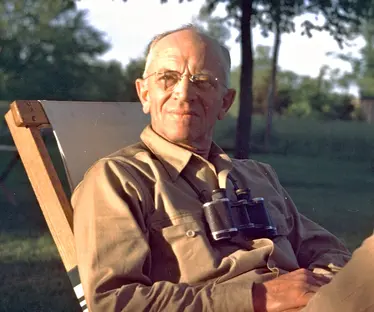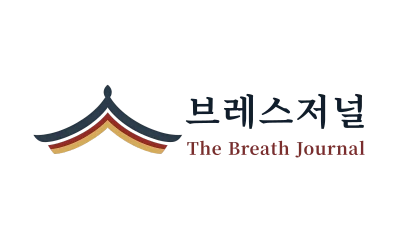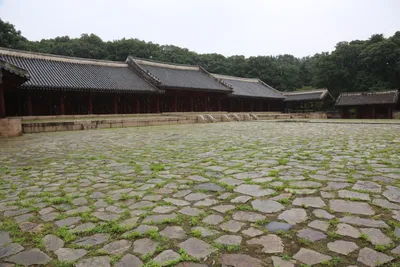
Aldo Leopold (1887~1948)
In his youth, he was a passionate hunter and worked as a forester. However, through the process of living directly with nature, he realized that humans cannot simply manage or conquer nature.
His book 《A Sand County Almanac》 (1949, published posthumously) resonated deeply not only in the United States but also in global environmental thought. The "Land Ethic" proposed in this book was a radical and fundamental suggestion to view humans, animals, plants, and soil as one community.
Q1. You originally started as a hunter and forester. How did you come to the philosophy of 'Land Ethic'?
I was not different from others at first. I viewed the forest as an object of management and wildlife as targets for hunting. But one day, while hunting a wolf, I saw the “blue flame” fading in the wolf's eyes.
In that moment, I felt as if the entire mountain was speaking. I thought that eliminating the wolf would increase the deer population and enrich the forest, but that was not the case. When the deer population increases, the forest is destroyed, and the mountain becomes sick. I realized that nature is not a simple equation calculated by humans, but a much more complex and delicate balance.
This experience led me to “Thinking Like a Mountain” and further to the idea that human life must be connected to the entire land.
Q2. If you were to define the concept of 'Land Ethic', what would it mean?
Ethics have expanded over time. Initially, it was between individuals, then between individuals and society. Now, ethics must expand again to include the relationships between humans and the land, water, plants, and animals.
The land ethic I speak of is not merely a slogan to preserve nature. It is the realization that “humans are not conquerors of the land community, but citizens and members within it.”
The right action is to maintain the stability and beauty of the land community, while the wrong action harms it. The climate crisis and ecological destruction we face today can ultimately be seen as a result of ignoring this ethic.
Q3. Brez Journal considers 'environment, inner self, and tradition' as the three pillars of philosophy. I believe that the environment is connected to human inner self and way of life. How do you view the relationship between nature and the inner self?
Nature is not a separate entity from our spirit. People walk in the forest, sit by the river, and feel the wind to find peace of mind. This is not merely a preference; it is because our existence is originally part of nature.
It was the same on the farm in Wisconsin where I lived. While cutting down an oak tree, I saw the history of the region and the flow of the seasons in the tree rings, and I learned about the resilience of life from the grass that sprouts again after winter and the songs of birds.
Inner peace does not come from separation from nature, but rather from realigning oneself with the rhythms of nature. That is what I call healing and restoration.
Q4. What relationship do you see between tradition and culture and nature?
Human culture originally arose from the land. The soil that grew grains, the trees that built homes, the winds and rivers that sang songs… all are sources of culture. However, modern society takes this for granted and forgets it.
Tradition is not merely customs of the past. It is a record of the long-standing relationship between the land and humans. If you respect tradition, it is also an act of respecting nature. Forgetting tradition is no different from losing the roots to which you belong.
Q5. If you have any final words for us living in the era of the climate crisis today, what would they be?
Humanity today stands before a great choice. Industry and technology have brought immense convenience, but they have also greatly harmed the land, forests, rivers, and life. If we continue down this path, we will ultimately face the destruction of ourselves. The message I want to convey is simple. We are not the owners of this land, but citizens of it.
If we do not learn to live humbly and responsibly within the land community, the future will no longer be generous to us.


![[Scenario] 2026 Global Wildfire Calendar: The Unending Cycle of Flames](https://cdn.breathjournal.com/w400/q80/article-images/2025-10-01/83cbd0d7-c7c9-4101-b4f6-e39cff028d87.png)

![[Focused Planning] 2026 Global Wildfire Calendar, Facing a Charred Future](https://cdn.breathjournal.com/w400/q80/article-images/2025-10-01/5be639f5-d684-4605-acb1-e0127c554e7c.png)

댓글 (0)
댓글 작성
댓글을 작성하려면 로그인이 필요합니다.
로그인하기